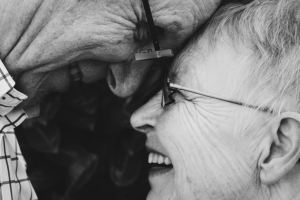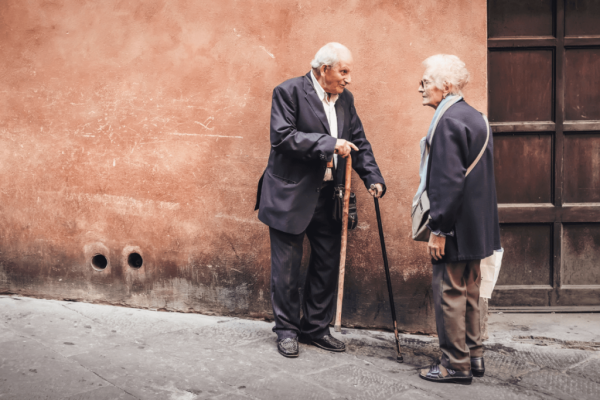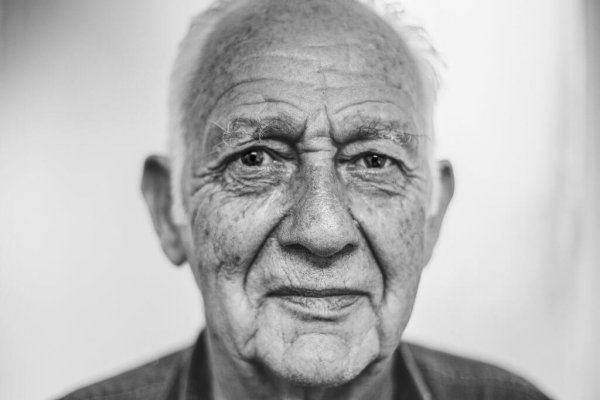Active Aging: A Key Part of Well-Being in Old Age


Written and verified by the psychologist Gema Sánchez Cuevas
It’s not easy to think about, but time goes by for everyone. At some point in your life you’ll get to the stage of life that no one who hasn’t gotten there yet understands. We’re talking about old age.
Thinking about it now, one question comes to mind: is it the same for everyone? The truth is that it’s not. Actually, during this last part of life, every one of us is still unique. That’s why it’s important to point out the differences between active and passive aging.
These differences go way beyond just physical problems. You can also see them, for example, in whatever emotions are most on display.
The fact is that the level of activeness a person keeps up in their life has a big impact on all the conditions related to their state of well-being. Keep on reading to find out why active aging is so important for your well-being!
“When I am told I am too old to do something, I try to do it right away.”
-Pablo Picasso-
Your psychological state has an impact on your life span and quality of life
In the past few centuries, we’ve made huge progress in our hygiene and personal care. We know a lot more about diseases and how to treat them.
People advocate for security in the different areas of life. All this has a clear result – there are more and more people living longer and longer.
But it’s not just our physical well-being that has an impact, our mental well-being does too. Although people have traditionally seen our psychological state as a secondary factor, putting the physical first, this is starting to change. And it’s changing so much that it’s become a key factor in the current research on old age.
“We all want to make it to our old age, and we all deny we’ve made it.”
-Quevedo-

For example, some studies have shown that your cognitive capacity, your evaluation of your well-being, feeling useful, and participating in activities every day, are the best predictors of a long life. What does this all highlight? It highlights the importance of active aging for your quality of life.
What does active aging involve?
Active aging means that elderly people take part in social activities and also keep on seeking out and having new experiences that will boost their learning and be enjoyable for them.
It also involves individual development, self-actualization, and well-being over the years. That is, its goal is for people to age successfully. The point is for their “ailments” to be as little of an obstacle to their well-being as possible.
To do this, you have to keep in mind a person’s age, their physical and psychological health, their cognitive efficiency, their social competence, their self-control, and their general life satisfaction.
They can achieve good levels of all these things by working on three basic areas: avoiding illnesses and handicaps, keeping up high levels of cognitive and physical functioning, and building on the commitment to life we have when we reach old age.
“A beautiful old age is, usually, the reward for a beautiful life.”
-Pitágoras-
What benefits does active aging have?
Your way of acting, thinking, and feeling have an impact on your health, participation in a social life, and security when you reach old age. That is, they play a role in whether or not you age actively. So your lifestyle will have a big influence on your well-being.
For example, how often you do mental tasks is one factor that can keep your brain healthy. So it’s a good idea to do activities like crossword puzzles, sudoku, or play chess.
This way you can avoid the cognitive deterioration associated with dementia. But besides just exercising your memory, attention, or concentration, there are other things to think about.

Another important thing for active aging is that a person feels as competent as possible in their daily life. It’s good for them to feel capable of continuing to control their life or the conditions of their health. This will help them a lot when it comes to boosting their self-esteem and well-being.
Lastly, scientists have found that being able to recover or not from an illness depends somewhat on how a person confronts stressful situations.
In this sense, avoiding those situations won’t help at all. But if you try to confront them actively you’ll have more tickets for survival…Work on active aging!
Images courtesy of Lotte Meijer, Cristina Gottardi, and Neill Kumar.
It’s not easy to think about, but time goes by for everyone. At some point in your life you’ll get to the stage of life that no one who hasn’t gotten there yet understands. We’re talking about old age.
Thinking about it now, one question comes to mind: is it the same for everyone? The truth is that it’s not. Actually, during this last part of life, every one of us is still unique. That’s why it’s important to point out the differences between active and passive aging.
These differences go way beyond just physical problems. You can also see them, for example, in whatever emotions are most on display.
The fact is that the level of activeness a person keeps up in their life has a big impact on all the conditions related to their state of well-being. Keep on reading to find out why active aging is so important for your well-being!
“When I am told I am too old to do something, I try to do it right away.”
-Pablo Picasso-
Your psychological state has an impact on your life span and quality of life
In the past few centuries, we’ve made huge progress in our hygiene and personal care. We know a lot more about diseases and how to treat them.
People advocate for security in the different areas of life. All this has a clear result – there are more and more people living longer and longer.
But it’s not just our physical well-being that has an impact, our mental well-being does too. Although people have traditionally seen our psychological state as a secondary factor, putting the physical first, this is starting to change. And it’s changing so much that it’s become a key factor in the current research on old age.
“We all want to make it to our old age, and we all deny we’ve made it.”
-Quevedo-

For example, some studies have shown that your cognitive capacity, your evaluation of your well-being, feeling useful, and participating in activities every day, are the best predictors of a long life. What does this all highlight? It highlights the importance of active aging for your quality of life.
What does active aging involve?
Active aging means that elderly people take part in social activities and also keep on seeking out and having new experiences that will boost their learning and be enjoyable for them.
It also involves individual development, self-actualization, and well-being over the years. That is, its goal is for people to age successfully. The point is for their “ailments” to be as little of an obstacle to their well-being as possible.
To do this, you have to keep in mind a person’s age, their physical and psychological health, their cognitive efficiency, their social competence, their self-control, and their general life satisfaction.
They can achieve good levels of all these things by working on three basic areas: avoiding illnesses and handicaps, keeping up high levels of cognitive and physical functioning, and building on the commitment to life we have when we reach old age.
“A beautiful old age is, usually, the reward for a beautiful life.”
-Pitágoras-
What benefits does active aging have?
Your way of acting, thinking, and feeling have an impact on your health, participation in a social life, and security when you reach old age. That is, they play a role in whether or not you age actively. So your lifestyle will have a big influence on your well-being.
For example, how often you do mental tasks is one factor that can keep your brain healthy. So it’s a good idea to do activities like crossword puzzles, sudoku, or play chess.
This way you can avoid the cognitive deterioration associated with dementia. But besides just exercising your memory, attention, or concentration, there are other things to think about.

Another important thing for active aging is that a person feels as competent as possible in their daily life. It’s good for them to feel capable of continuing to control their life or the conditions of their health. This will help them a lot when it comes to boosting their self-esteem and well-being.
Lastly, scientists have found that being able to recover or not from an illness depends somewhat on how a person confronts stressful situations.
In this sense, avoiding those situations won’t help at all. But if you try to confront them actively you’ll have more tickets for survival…Work on active aging!
Images courtesy of Lotte Meijer, Cristina Gottardi, and Neill Kumar.
This text is provided for informational purposes only and does not replace consultation with a professional. If in doubt, consult your specialist.







